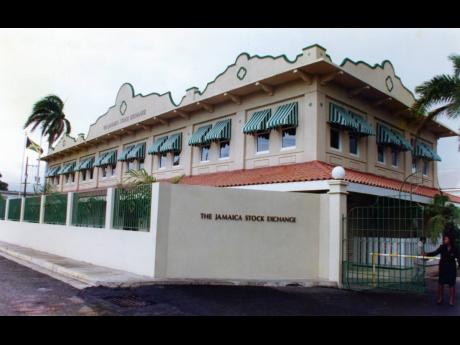JSE loses ground among global exchanges
The Jamaica Stock Exchange’s performance year to date ranks among the worst 10 in the world, reversing its stellar showing a year earlier.
The Nasdaq in the United States now tops the world as the best-performing market, which local analysts say is due to actions of that country’s central bank, including measures such as purchasing corporate bonds.
“The Federal Reserve intervening in the US market on a regular basis is creating confidence among US investors,” said Jason McPherson, senior portfolio adviser at Proven Wealth in a Financial Gleaner interview. “The JSE at this time does not have that kind of market intervention, as the Fed, where the central bank is purchasing securities.”
The Jamaican stock market is down 27 per cent year to date, a descent that began before the arrival of COVID-19 in Jamaica, but was exacerbated by the economic slowdowns linked to the pandemic. The fall in the JSE Combined Index lands it at the sixth worst market based on data from Countryeconomy, an open source data centre, cross-referenced with Bloomberg and JSE data.
The world’s worst-performing index was in Costa Rica, the Indice Accionario, down 36 per cent.
As the coronavirus began spreading globally earlier this year, markets were ravaged by investors discounting equities due to the future expected impact of COVID-19 on company earnings.
Only 11 of 87 exchanges analysed by the Financial Gleaner made positive returns year to date. The IBC Caracas index in Venezuela led the world with increased year to date performance up 252 per cent, but analysts have traditionally discounted its performance due to hyperinflation in the South American country.
MASSIVE REBOUND
The Nasdaq exchange in the US gained 13.8 per cent year to date, likely buoyed by massive rebounds by Tesla, Zoom, Amazon and other companies, seen as poised to grow in a post-COVID world. For example, one share in Tesla which traded at US$700 in early March dropped to US$361 by mid-March but rebounded and closed at US$1,390 on Tuesday.
Outside of actions taken by the Fed, McPherson noted, “the US is more sensitive to information and hence more efficient and volatile than the JSE”.
JSE remains underwater more than a month into the slow and phased reopening of the Jamaican economy.
While some stocks have rebounded to near normal levels, large capital stocks, which move the market, such as NCB Financial Group, are currently trading at or near one-year lows, which in turn keeps the overall market underwater. NCBFG, whose market capitalisation accounts for nearly one-quarter of the total market, hit a one-year high of $249 but is now trading below $135.
The JSE Combined Index had its worst day on March 25, when the market closed at 337,506 points, down 33 per cent from its high of 508,131 on January 2.
At half-year ending June, the market closed at 380,975 points, but has given up some of its gains in the past week, closing at 370,875 points on Monday.
In 2015 and 2018, the JSE was designated the best-performing stock market, globally.

